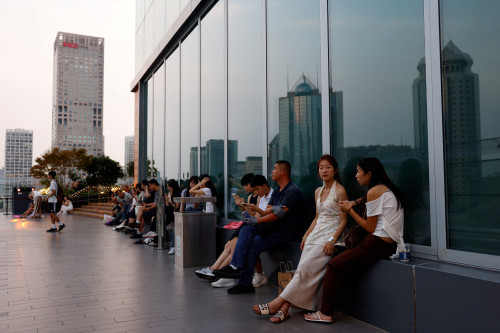TOKYO (Reuters) – Japanese Prime Minister Fumio Kishida said on Thursday he would not dissolve parliament in the coming days, following weeks of speculation that he might do so to call a snap election in the hopes of solidifying his power within the ruling party.
Talk of a dissolution surfaced a few weeks ago as Kishida’s support ratings rose in the days after his hosting of the Group of Seven (G7) summit in Hiroshima, his home base.
The speculation intensified as the opposition looked set to submit a no-confidence vote against the government, potentially handing Kishida a reason to dissolve the lower house and call a snap election.
“I am not thinking about dissolving parliament during the current session of the Diet,” Kishida told reporters at the prime minister’s office. The current session ends on June 21.
Asked about the opposition’s possible no-confidence motion, Kishida said he had instructed officials of his Liberal Democratic Party (LDP) to vote against it. Any such vote would mainly be symbolic given the LDP’s parliamentary majority.
While some LDP lawmakers had been in favour of an early election given the tailwind of a surging stock market and a fragmented and weak opposition, risks have also arisen in recent days.
Criticism has grown over national identification card issues and furore over a party thrown by Kishida’s son – his former political secretary – at the prime minister’s official residence. Both situations prompted some ruling party policymakers to call for caution about an election soon.
An election for parliament’s lower house is not due until 2025, but Kishida faces a party leadership race next year.
The main opposition Constitutional Democratic Party of Japan is preparing to submit a vote of no-confidence opposing a bill to boost Japan’s defence capabilities. The defence legislation is expected to come to a vote in the upper house of parliament on Friday.
(Reporting by Elaine Lies, Kaori Kaneko, Mariko Katsumura and Chang-Ran Kim; Editing by Tom Hogue, Gerry Doyle and Hugh Lawson)





